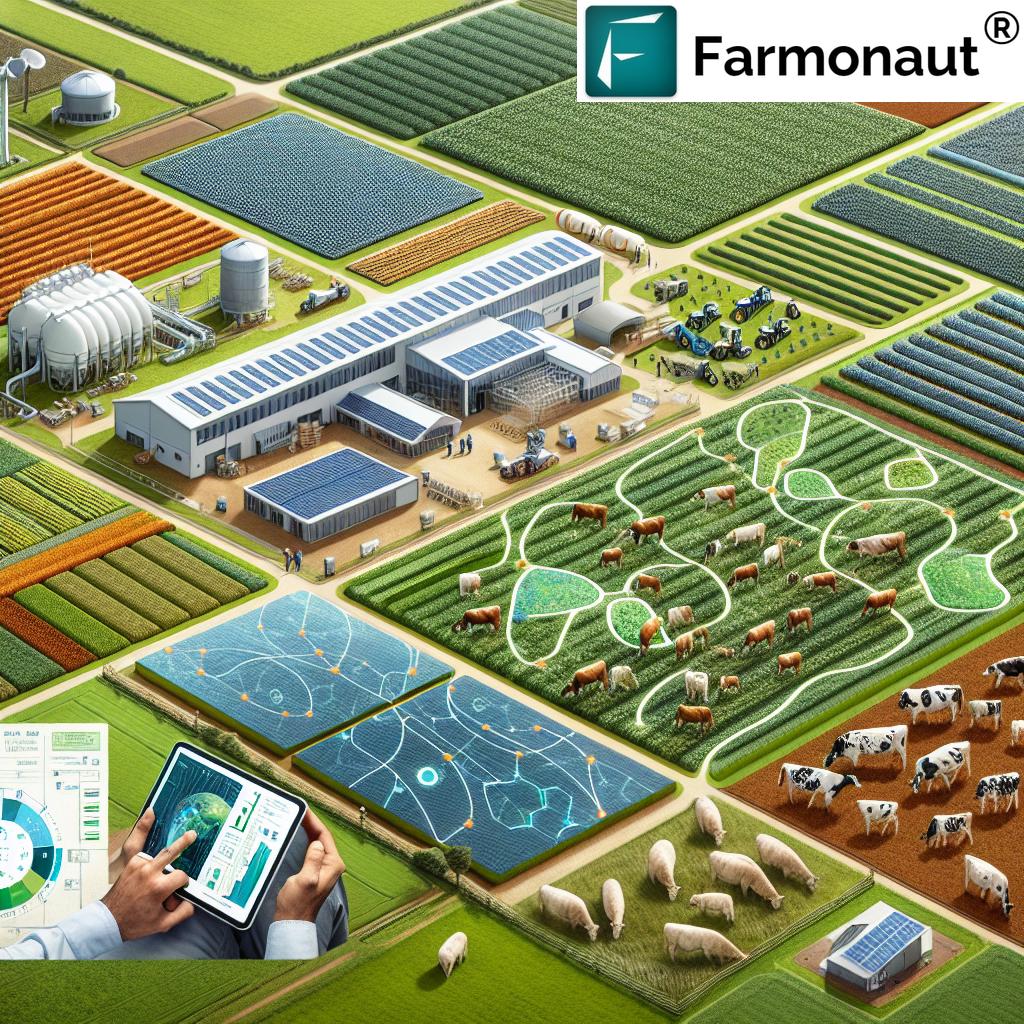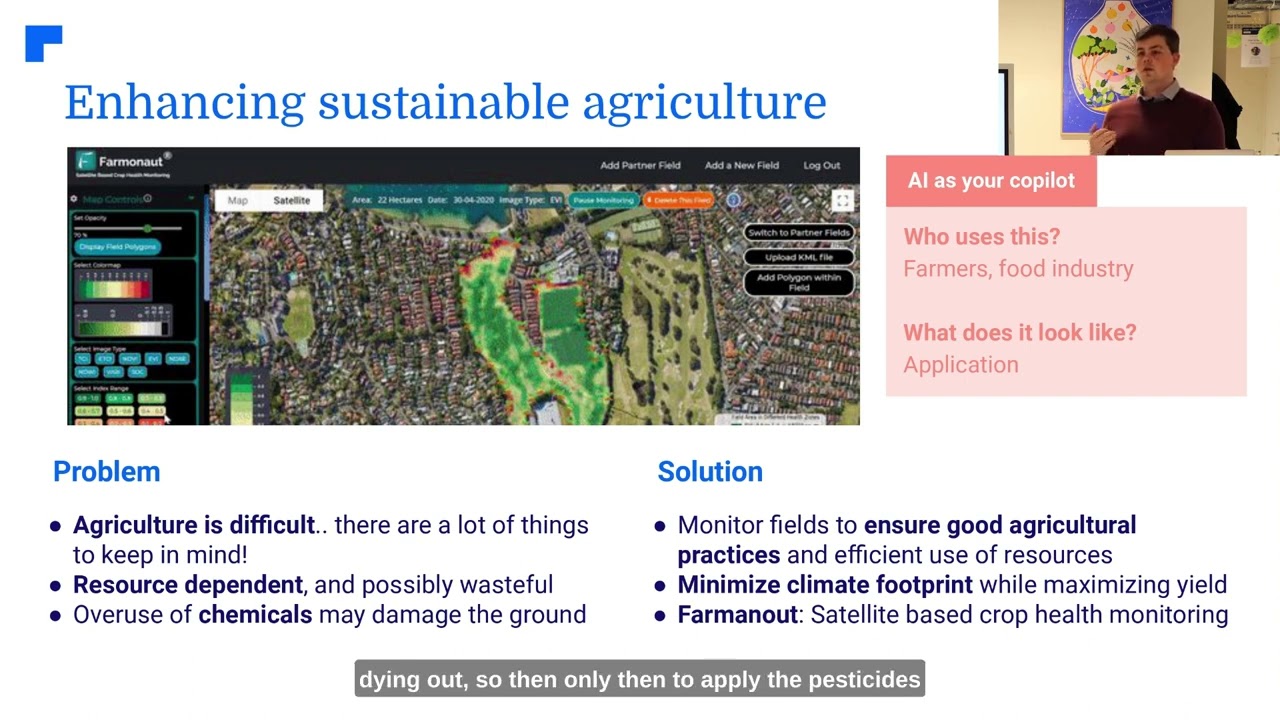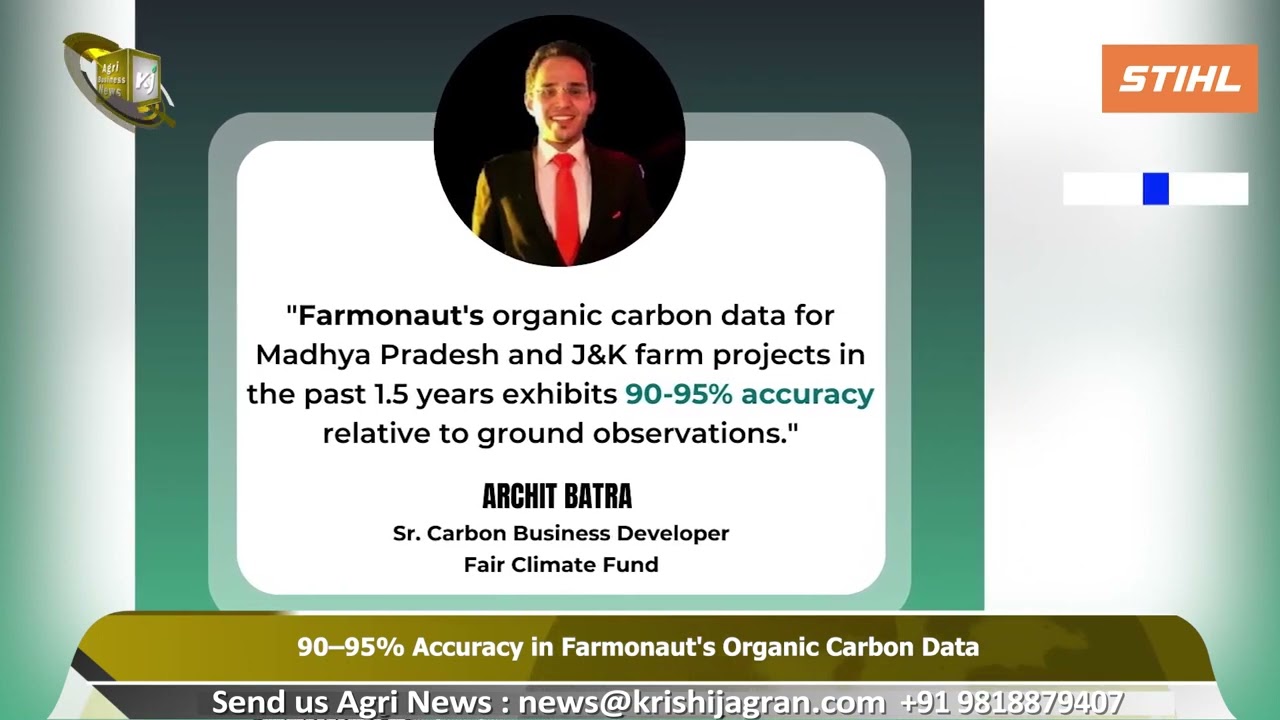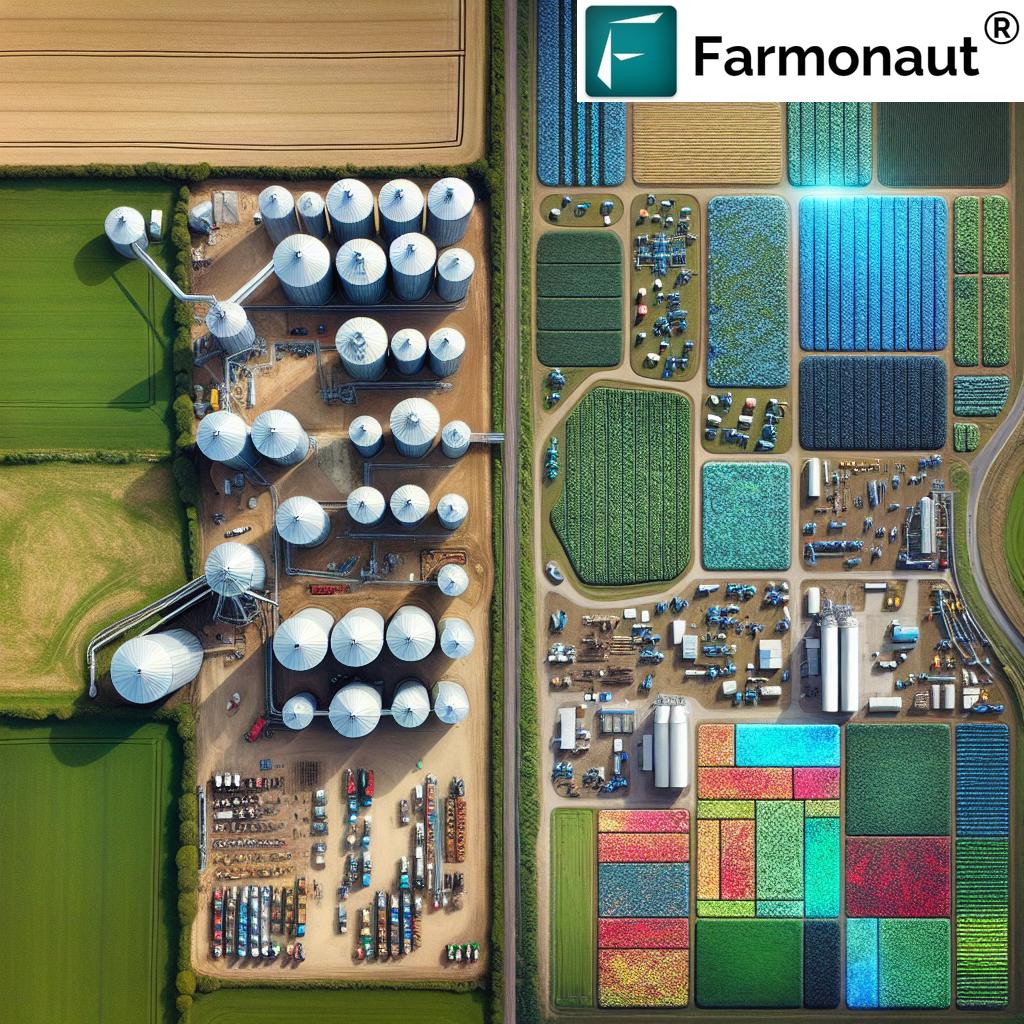Unlocking Profit: How England’s Farmers Turn Environmental Accountability into a Lucrative Income Stream
“Over 70% of England’s farmers are exploring new income streams through sustainable farming practices and carbon footprinting.”
In the verdant countryside of England, a quiet revolution is taking place. Farmers across the nation are discovering that environmental accountability isn’t just good for the planet – it’s good for their pockets too. As we delve into this transformative trend, we’ll explore how sustainable farming practices and carbon footprinting in agriculture are opening up new avenues for profit and innovation in the rural landscape.

The Rise of Environmental Accountability in English Farming
Environmental accountability for farmers has become more than just a buzzword; it’s a fundamental shift in how we approach agriculture. In England, where farming traditions run deep, this change is particularly significant. We’re witnessing a surge in farmers adopting practices that not only reduce their environmental impact but also create new income streams.
From the rolling hills of Yorkshire to the fertile plains of East Anglia, farmers are embracing technologies and methods that allow them to monitor and reduce their carbon footprint. This shift isn’t just about being eco-friendly – it’s about positioning English farms at the forefront of a global movement towards sustainable agriculture.
The Role of Technology in Sustainable Agriculture
At the heart of this transformation is the integration of cutting-edge technology into traditional farming practices. Agritech data analysis tools, like those offered by Farmonaut, are revolutionizing how farmers manage their land and livestock. These tools provide real-time insights into crop health, soil conditions, and resource usage, enabling farmers to make data-driven decisions that benefit both their bottom line and the environment.
Explore Farmonaut’s innovative solutions:
For those interested in leveraging Farmonaut’s technology for their own agricultural projects, check out their API and API Developer Docs.
Carbon Footprinting: A New Frontier in Farm Management
Carbon footprinting in agriculture has emerged as a crucial tool for environmental accountability. By measuring and understanding their carbon emissions, English farmers are not only contributing to national climate goals but also positioning themselves to benefit from carbon credit trading schemes.
- Reduced emissions lead to carbon credits
- Carbon credits can be sold for additional income
- Improved farm efficiency often results in cost savings
This approach to farm management is creating a win-win situation where environmental stewardship translates directly into financial gains.
Diversifying Farm Income Through Sustainability
Farm income diversification is no longer just about adding a farm shop or offering holiday cottages. Today, it’s about leveraging environmental practices to create new revenue streams. Let’s explore some of the innovative ways English farmers are turning their commitment to sustainability into profit:
1. Carbon Credit Trading
By implementing practices that sequester carbon or reduce emissions, farmers can earn carbon credits. These credits can then be sold on carbon markets, providing a direct financial incentive for environmental stewardship.
2. Premium Pricing for Sustainable Products
Consumers are increasingly willing to pay more for products that are produced sustainably. By adopting and certifying eco-friendly practices, farmers can command higher prices for their crops and livestock.
3. Eco-Tourism and Educational Programs
Farms that showcase sustainable practices can attract visitors interested in learning about environmentally friendly agriculture. This opens up opportunities for farm tours, workshops, and educational programs.
4. Renewable Energy Production
Many farms are well-positioned to generate renewable energy, such as solar or wind power. This not only reduces energy costs but can also provide income through selling excess energy back to the grid.
“Adopting agritech data analysis tools can help farmers reduce carbon emissions by up to 25% while optimizing crop management.”

The Impact of Digital Solutions on Rural Data Management
The digital revolution has reached the English countryside, transforming how farms operate. Rural data management, powered by advanced digital solutions, is enabling farmers to:
- Track and analyze crop yields with precision
- Monitor livestock health and productivity
- Optimize resource use, from water to fertilizers
- Predict and mitigate environmental risks
These digital tools are not just improving efficiency; they’re providing the data necessary for environmental impact monitoring on farms. This data is crucial for participating in carbon credit schemes and demonstrating sustainable practices to consumers and regulators alike.
Access Farmonaut’s digital solutions on your mobile device:
Environmental Accountability: A Catalyst for Innovation in Agriculture
The push for environmental accountability is driving innovation across the agricultural sector in England. From advanced machinery designed to minimize soil disturbance to AI-powered crop management systems, we’re seeing a surge in technologies aimed at making farming more sustainable and profitable.
Precision Agriculture: The Future of Farming
Precision agriculture is at the forefront of this innovation wave. By using GPS-guided tractors, drones, and satellite imagery, farmers can:
- Apply fertilizers and pesticides with pinpoint accuracy, reducing waste and environmental impact
- Monitor crop health in real-time, allowing for early intervention and improved yields
- Optimize irrigation systems to conserve water
- Create detailed maps of soil composition to inform planting decisions
These technologies not only improve environmental outcomes but also significantly boost productivity and profitability.
Regenerative Agriculture: Building Soil Health
Regenerative agriculture practices are gaining traction among English farmers. These methods focus on improving soil health, which not only sequesters carbon but also enhances crop resilience and reduces the need for synthetic inputs. Key practices include:
- Minimal tillage to preserve soil structure
- Cover cropping to prevent erosion and build organic matter
- Crop rotation to maintain soil nutrients and break pest cycles
- Integrating livestock to improve nutrient cycling
By adopting these practices, farmers are seeing improvements in soil fertility, water retention, and overall farm productivity – all while contributing to carbon sequestration efforts.
The Role of Policy in Promoting Environmental Accountability
Government policies play a crucial role in encouraging environmental accountability in farming. In England, several initiatives are supporting farmers in their transition to more sustainable practices:
1. Environmental Land Management Schemes (ELMS)
ELMS is replacing the EU’s Common Agricultural Policy in England, focusing on rewarding farmers for environmental stewardship. This scheme provides financial incentives for practices that enhance biodiversity, improve water quality, and mitigate climate change.
2. Sustainable Farming Incentive (SFI)
Part of ELMS, the SFI offers payments to farmers for actions that support sustainable farming and land management. This includes practices like maintaining hedgerows, improving soil health, and reducing pesticide use.
3. Grants for Technology and Equipment
Various grants are available to help farmers invest in technology and equipment that improves environmental performance. This includes precision farming tools, renewable energy systems, and water management solutions.
4. Research and Development Support
Government funding for agricultural research is increasingly focused on sustainable farming methods and technologies. This research is crucial for developing new approaches to environmental accountability in farming.
Case Studies: Success Stories from English Farms
Across England, farmers are reaping the benefits of embracing environmental accountability. Here are a few examples of how innovative approaches are translating into tangible benefits:
1. The Carbon-Neutral Dairy Farm
A dairy farm in Somerset has achieved carbon neutrality by implementing a range of measures including:
- Installing solar panels and a biogas plant
- Improving grazing management to enhance soil carbon sequestration
- Optimizing feed to reduce methane emissions from cattle
The farm now generates additional income by selling carbon credits and commanding premium prices for its “climate-friendly” milk products.
2. The Tech-Savvy Arable Farm
An arable farm in East Anglia has embraced precision agriculture technologies, resulting in:
- 25% reduction in fertilizer use
- 15% increase in crop yields
- Significant reduction in water usage through precision irrigation
The farm has not only reduced its environmental impact but has also seen a substantial increase in profitability due to reduced input costs and improved yields.
3. The Diversified Sheep Farm
A sheep farm in the Lake District has diversified its income streams by:
- Implementing rotational grazing to improve soil health and carbon sequestration
- Offering eco-tourism experiences, including shepherding courses and farm stays
- Producing artisanal wool products marketed for their sustainable production methods
This approach has not only increased the farm’s income but has also significantly enhanced its resilience to market fluctuations.
The Global Context: England’s Farmers on the World Stage
As English farmers embrace environmental accountability, they’re not just contributing to national goals – they’re positioning themselves as leaders in the global movement towards sustainable agriculture. This has several important implications:
1. Export Opportunities
Sustainably produced English agricultural products are increasingly sought after in global markets, where consumers are willing to pay a premium for environmentally friendly options.
2. Knowledge Exchange
English farmers are sharing their experiences and best practices with counterparts around the world, contributing to a global knowledge base on sustainable agriculture.
3. Climate Change Mitigation
By reducing emissions and sequestering carbon, English farms are playing a crucial role in global efforts to combat climate change.
4. Biodiversity Conservation
Sustainable farming practices are helping to preserve and enhance biodiversity, contributing to global conservation efforts.
The Road Ahead: Challenges and Opportunities
While the benefits of environmental accountability in farming are clear, there are still challenges to overcome:
1. Initial Investment Costs
Many sustainable practices and technologies require significant upfront investment. Finding ways to finance these changes remains a challenge for some farmers.
2. Skills and Knowledge Gap
Adopting new technologies and practices often requires new skills. Ongoing education and training for farmers and farm workers are crucial.
3. Market Volatility
While sustainable products often command premium prices, they’re not immune to market fluctuations. Developing resilient business models is key.
4. Regulatory Environment
As environmental regulations evolve, farmers need to stay informed and adapt their practices accordingly.
Despite these challenges, the opportunities presented by environmental accountability are vast. As technology continues to advance and consumer demand for sustainable products grows, English farmers are well-positioned to thrive in this new agricultural landscape.
Conclusion: A Sustainable Future for English Farming
The journey towards environmental accountability in English farming is more than just a trend – it’s a fundamental shift in how we approach agriculture. By embracing sustainable practices, leveraging technology, and diversifying income streams, farmers are not only reducing their environmental impact but are also opening up new avenues for profit and innovation.
As we look to the future, it’s clear that environmental accountability will continue to play a crucial role in shaping the agricultural sector. Those who adapt and innovate will not only contribute to a healthier planet but will also position themselves for long-term success in an increasingly eco-conscious market.
For English farmers, the message is clear: environmental accountability is not just a responsibility – it’s an opportunity. An opportunity to innovate, to grow, and to lead the way in sustainable agriculture. As we continue to unlock the potential of this approach, we’re not just preserving our rural heritage – we’re cultivating a thriving, sustainable future for generations to come.
| Practice | Environmental Impact | Potential Income Stream |
|---|---|---|
| Precision Agriculture | 20-30% reduction in fertilizer use | £50-100/hectare in input savings |
| Crop Rotation | 15% increase in soil organic matter | 10-20% yield increase |
| Carbon Sequestration | 2-5 tons CO2e/hectare/year sequestered | £30-50/ton CO2e in carbon credits |
| Renewable Energy (Solar) | 80% reduction in farm energy emissions | £5,000-10,000/year in energy savings |
| Organic Farming | 50% reduction in pesticide use | 20-30% price premium on products |
FAQs
Q: What is environmental accountability in farming?
A: Environmental accountability in farming refers to the practices and methods farmers use to measure, manage, and reduce their environmental impact. This includes monitoring carbon emissions, conserving water, protecting biodiversity, and implementing sustainable land management techniques.
Q: How can farmers benefit financially from environmental accountability?
A: Farmers can benefit financially through various means, including carbon credit trading, accessing government incentives for sustainable practices, commanding premium prices for eco-friendly products, and reducing operational costs through efficient resource management.
Q: What role does technology play in environmental accountability for farmers?
A: Technology plays a crucial role by providing tools for precise monitoring and management of farm resources. This includes satellite imagery for crop health monitoring, AI-driven advisory systems for optimal resource use, and data analytics for tracking environmental impact and identifying areas for improvement.
Q: How can small-scale farmers implement environmental accountability practices?
A: Small-scale farmers can start with simple practices like crop rotation, minimal tillage, and organic farming methods. They can also utilize affordable technology solutions, such as mobile apps for farm management, to track their environmental impact and improve efficiency.
Q: What are the main challenges farmers face in adopting environmental accountability measures?
A: The main challenges include initial investment costs for new technologies or practices, the need for education and training in new methods, adapting to changing regulations, and balancing short-term profitability with long-term sustainability goals.




















